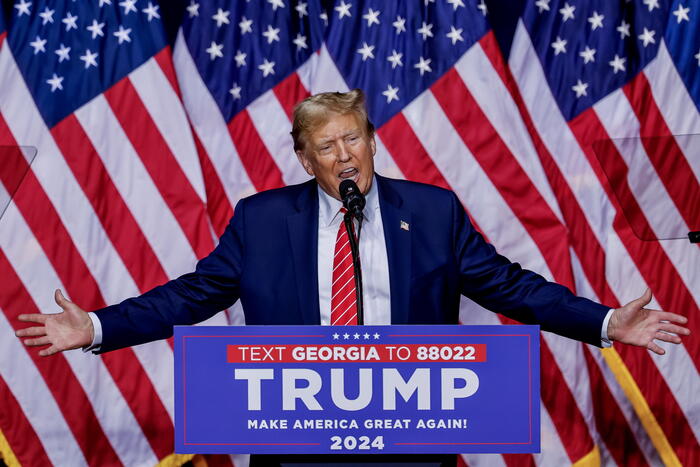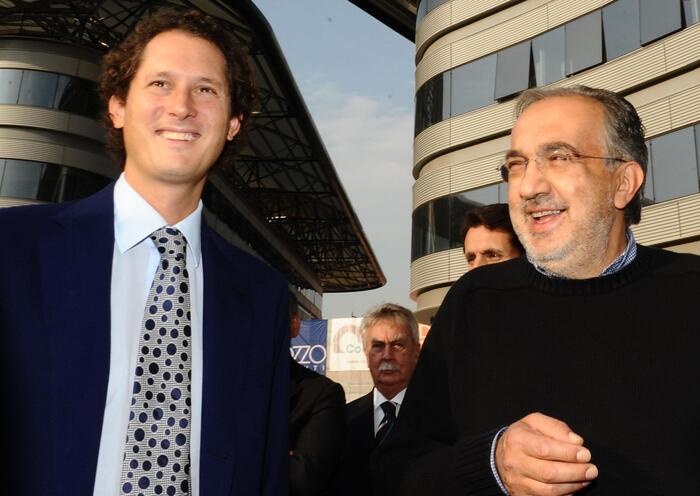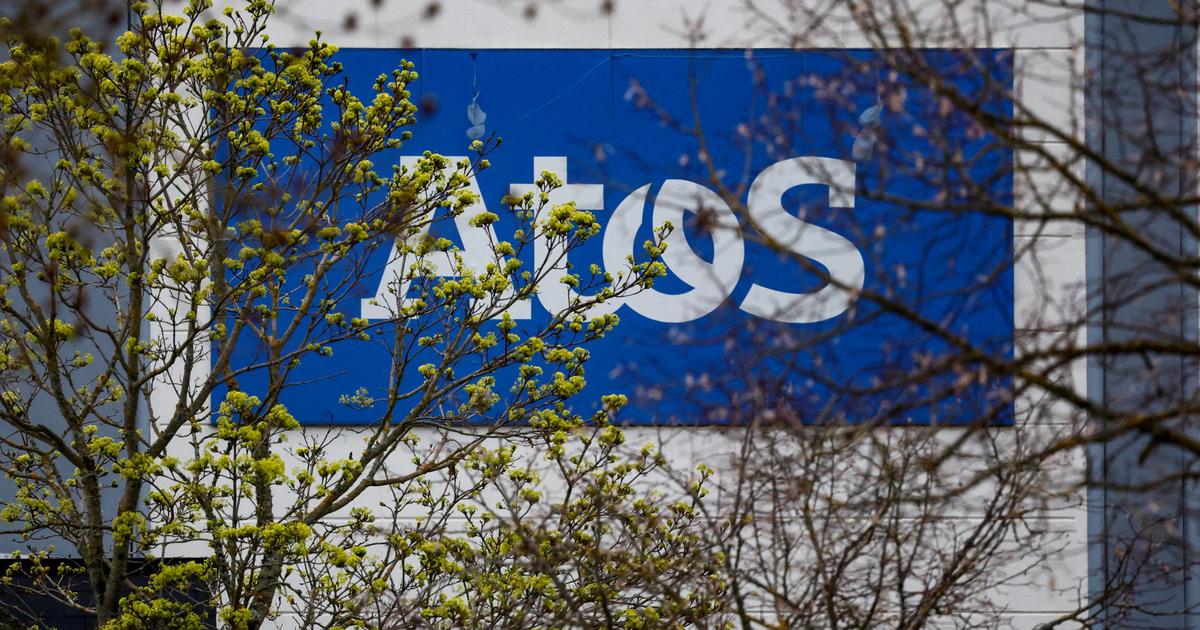Naturgy logo at its headquarters in Madrid.REUTERS
The bombing jumped shortly after lunchtime on Thursday, February 10.
Naturgy announced its split into two independent companies: one that would keep the regulated businesses (networks and distribution) and the other with the liberalized ones (renewables and marketing).
The news was surprising, raising important doubts among many analysts, who did not see value in the movement.
It did, however, have a clear meaning: after the controversial entry of the Australian fund IFM into the capital, the operation intended to offer a way out for shareholders who prefer to be in one of the legs of the business ―the regulated one with more recurring and stable returns, or the liberalized one, with more profitability but with more risk― of the second largest Spanish energy company and the sixth company of the Ibex 35 by market value.
But not in both.
Eight months later, with the Gemini operation —as the split was baptized— stalled, those who wanted to undo positions shake the tree again.
Several financial sources admit movements in recent weeks for a possible sale of the shares held by two investment funds —CVC and, above all, Global Infrastructure Partners (GIP)—.
Between the two they add up to more than 40% of the capital (20.6% and 20.7%, respectively) and accumulate juicy capital gains on their financial investment that now, with the segregation delayed
sine die
, they could materialize.
The same financial sources, familiar with the ins and outs of the Spanish energy company, acknowledge that one of the funds is in a hurry to get rid of its position in Naturgy.
But they remember that the market is not in a good moment.
The stock has lost 15% of its value in the last month and there are risks due to the war in Ukraine, energy tensions, and, above all, regulatory uncertainties.
The same sources consider that the alleged interest of some energy company in taking over the shares of one of these two large funds actually has to do with the approach that these have made to try to sell more than the real interest of other energy companies in the operation.
“Some shareholders, especially the funds, seem interested in taking the opportunity to sell now, at a time of high gas prices.
For them it would be easier to sell after the separation of businesses, but anything is possible: also that they sell now, ”says Fernando García, who follows the day-to-day life of the former Gas Natural Fenosa for the Canadian investment bank RBC Capital Markets.
If it is done now, the sale could be carried out in two ways: with a hasty placement or looking for a buyer to take over —entirely— the shareholding package of GIP or CVC.
"No one is unaware that these investors usually operate with investment cycles of four to six years," market sources point out.
And in the case of GIP, it already seems to have completed the period of maturation of the investment.
GIP has just completed six years as a Naturgy shareholder;
CVC, four.
And the drums of change in the capital of the company chaired by Francisco Reynés have grown strongly since the return of summer, with the French energy colossus Total Energies ―the largest oil company in the EU and one of the largest companies in the Old Continent― as potential buyer.
The pieces of that puzzle partially fit, because the French company has been showing interest in the Spanish market for years.
But not entirely: “His entry as an industrial shareholder of the current Naturgy would not make much sense;
the purchase of a part of the business (the liberalized part) would, as rumors have it.
For them, what would be interesting would be the commercialization business (their client portfolio) and some electricity generation assets”, says Virginia Romero,
Banco Sabadell analyst.
According to his calculations, these assets account for only 12% of the energy value.
“The exit of the CVC and GIP shareholders could make sense, considering the capital gains obtained.
But getting out now will not be easy: we are talking about a very important participation, and the moment is very uncertain, ”he adds by phone.
“The separation of the company in two was intended to give shareholders a free hand so that they could stay in the part of the business that interests them and sell the part that they did not want.
The funds, by their very DNA, want the regulated part and much less the liberalized part, the most volatile”, explains Javier Suárez, co-head of European analysis at the Italian investment bank Mediobanca and a specialist in energy companies, who is sure that segregation will eventually come out ahead.
The question, he says, is when.
“If it is taking longer it is because it is a systemic company.
There are more elements that explain the delay, such as the difficulty of valuing the assets or the separation of the debt, but the most important point is to give stability to the shareholders of the entire gas value chain in Spain”.
GIP and CVC are, after La Caixa —which has 26.7% of the shares through its investment arm (Criteria) and which has shown no interest in selling—, the largest Naturgy shareholders.
The Australian pension fund IFM, which just a year ago launched a controversial takeover bid and does not seem interested in leaving either, closes the big-name poker in the capital.
Recent events have highlighted the growing importance of the latter on the board of directors: the Minister of Industry, Reyes Maroto, took advantage of her visit to a company battery center in the oceanic country to meet with representatives of the vehicle investor.
To questions from this newspaper, a spokesman for Naturgy has refused to make statements about any movement in its shareholding.
Regarding the segregation of assets, he limited himself to affirming that the board of directors of the energy company "continues to monitor the progress of all the analyzes of the project, which until now confirm its strategic suitability", but that "the current volatility of the markets, the evolution of the energy situation and the multiple regulatory uncertainties, still pending to be known exactly, advise adapting the calendar to the evolution of events”.
The agreement for Algerian gas, about to
Last Wednesday, the Algerian state-owned energy company Sonatrach announced the end of talks with Naturgy —of which it is also a shareholder: it has 4.1% of the capital— to agree on a new price for natural gas that arrives through the Medgaz pipeline. .
"The negotiations have ended and we will soon sign an agreement," said the chief executive of the Algerian state company, Toufik Hakkar.
The final figure will be confidential, as it has been until now —it is, as they say in the gas sector, “the best kept secret” in the industry—, but it will certainly be well above current values, after the explosion of the market in the last months.
“There is going to be a significant rise in the cost of gas imported from Algeria, and this will be noticeable in Naturgy's results,” García, from RBC Capital Markets, projects.
"That change in the terms of the contract is also an argument for shareholders who want to sell, either before or after Gemini."
Subscribe to continue reading
read without limits
Keep reading
I'm already a subscriber









